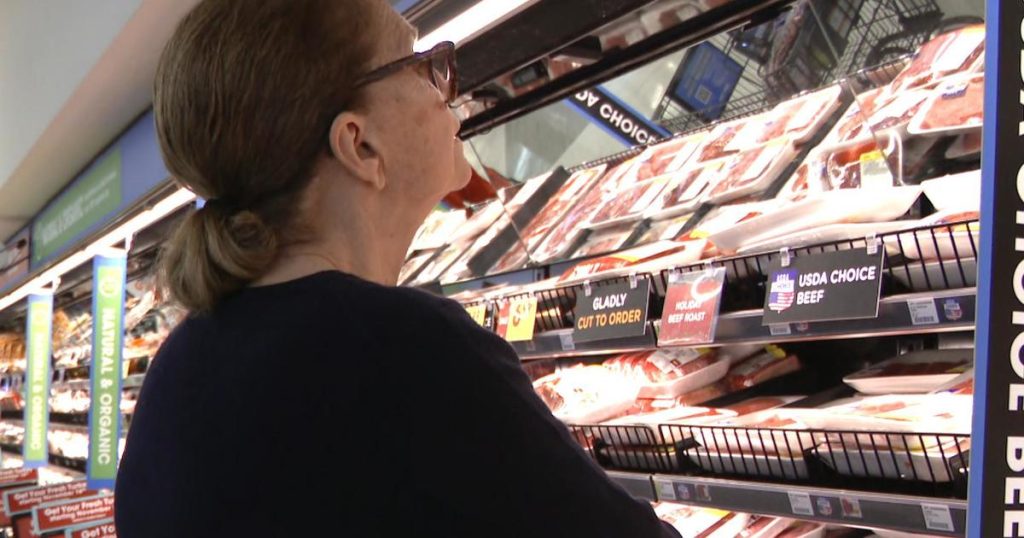Inflation has been on the rise for the third consecutive month, with gas, rent, and grocery prices being the major factors contributing to the stubbornly high levels. The increase in inflation has exceeded expectations, causing concern among consumers and economists alike. This trend is particularly concerning as it impacts the cost of living for many individuals and families, making it difficult to stretch their budgets and maintain their standard of living. Gas prices have been a significant driver of the inflation increase, with prices at the pump continuing to rise due to a combination of factors such as supply chain disruptions and increasing global demand.
Rent prices have also been a major contributor to the high inflation rates, as the housing market remains competitive and rents continue to rise in many areas. This has put a strain on renters, who are already grappling with stagnant wages and rising living costs. Additionally, grocery prices have seen a significant increase, with the cost of food rising across the board. This has been attributed to various factors such as supply chain issues, transportation costs, and overall economic instability. As a result, consumers are feeling the pinch at the checkout line, as their grocery bills continue to climb.
As inflation remains high, economists are closely monitoring the situation to assess the impact on the overall economy. High inflation rates can lead to a decrease in purchasing power for consumers, as the cost of goods and services continues to rise. This can have ripple effects throughout the economy, as businesses may struggle to maintain profit margins and consumers may cut back on spending. Additionally, high inflation can also lead to higher interest rates, which can impact borrowing costs for individuals and businesses. As a result, inflation is a key economic indicator that policymakers must carefully manage to ensure the stability of the economy.
The rising prices of gas, rent, and groceries are not only impacting consumers but also businesses, as they are forced to navigate the challenging economic environment. Many companies are facing increased costs for raw materials, transportation, and labor, which can put pressure on their bottom lines. In order to maintain profitability, businesses may be forced to pass on these costs to consumers in the form of higher prices. This can further exacerbate the inflationary pressures in the economy, creating a challenging environment for both businesses and consumers alike.
As inflation continues to rise, consumers are faced with difficult choices when it comes to managing their budgets and maintaining their standard of living. Many individuals and families are finding it increasingly difficult to make ends meet as the cost of living continues to rise. This can lead to financial strain, as individuals may have to cut back on discretionary spending or make sacrifices in other areas to make ends meet. As a result, it is important for consumers to carefully monitor their expenses and make informed financial decisions to navigate the challenging economic environment.
Overall, the high inflation rates driven by gas, rent, and grocery prices are a concerning trend that is impacting consumers, businesses, and the overall economy. As policymakers and economists work to address these challenges, it is important for individuals to stay informed and proactive in managing their finances. By staying informed, making smart financial decisions, and seeking support when needed, individuals can navigate the current economic landscape and build a more secure financial future.


